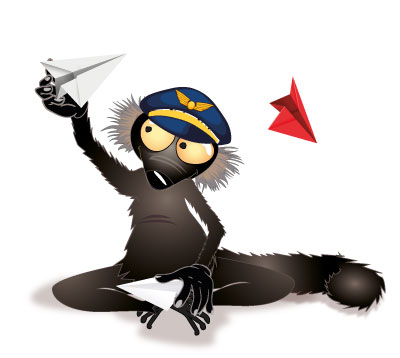
By plane
The following companies come to Nosy Be airport:
Ethiopian Airlines
Madagascar Airlines
Neosair
Airlink
From the airport, take a taxi or other vehicle to the port of Nosy Komba next to the large port of Hell-Ville.
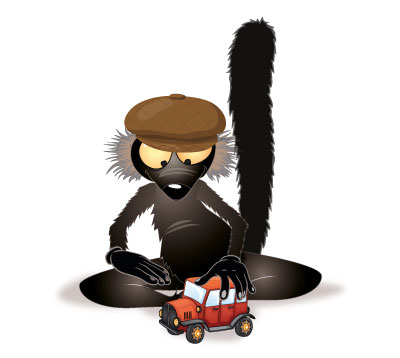
By road
By car, bush taxi or private 4×4 taxi. Departure from Antananarivo, Mahajunga or Diego Suarez; arrival at Ambanja. Then take a taxi to Ankify (30 minutes). Then, transfer by dugout canoe or fast boat from Ankify to Nosy Komba or Nosy Be.
Most of the collective boats from Ankify go to the port of Hell Ville Nosy Be. If you want to go directly to Nosy Komba without passing through Nosy Be, please inform the person in charge of the boat before leaving Ankify.
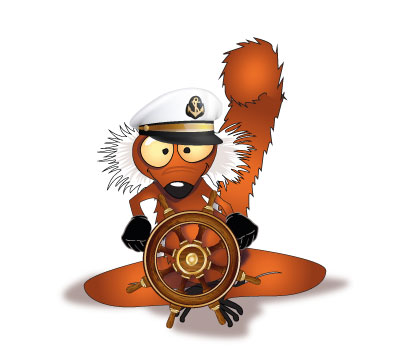
By the sea
Transfer from Hell-Ville Nosy Be in a “collective” pirogue (with other people) from 9:00 am to noon every morning. Price per person: 20 000 ariary. For those who wish to be independent, it is possible to rent a fast boat for a private transfer.
By cruise ship :
Sailboat or ferry cruise.
Please contact specialized agencies for more information.
Visa formalities for Nosy Be
How to obtain a tourist visa ?
Visas are issued on arrival at Fascène airport, Nosy Be, or at Ivato airport, Tananarive, for a period of less than 60 days and for a single entry into the country. It is also possible to apply online via the “evisa” portal. For the online version, you need to apply between 7 days and 6 months before entering Madagascar.
Price of the visa (2024)
- From 0 to 15 days: €10 / $10.
- From 16 to 30 days: 35€ / 37$.
- From 31 to 61 days: €40 / $45.
The price of the visa issued at Fascène, Nosy Be or Ivato, Tananarive airport is the same as for the paperless version obtained online.
The essentials to take
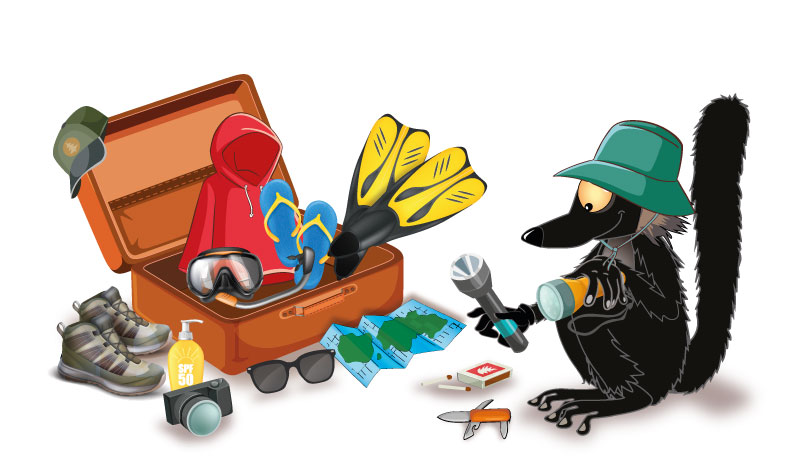
Torch (headlamp)
Waterproof bag
Hat
Sunglasses
Trekking shoes
Long clothing
Raining clothes
Knife
Water purification tablets
Hearing protection
Travelling mosquito net
Sunscreen cream
Non-rechargeable batteries
Disposable plastics (razors, etc.)
Aerosol cans
Hair dryer
Valuable items
Lots of cash
RESPECT
Malaria
Take anti-malaria treatment and repellent against mosquito bites.
CURRENCY
Do not confuse euro and ariary (the local currency). By believing to “spoil” certain people, one does not necessarily do a service!
Diving mask
Even if you are not a “Cousteau”, bring a diving mask to discover the marine fauna in less than 3 meters of water.
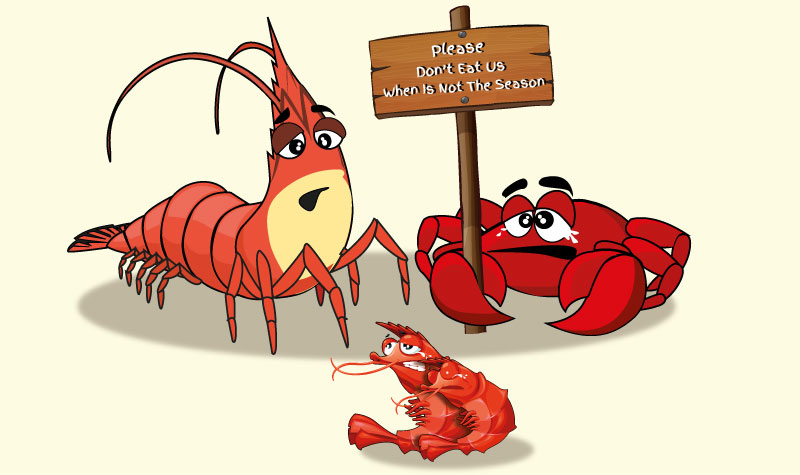
Responsible travel
It’s important to respect the closing periods of protected species in reproduction: shrimps, spiny lobsters, crabs, octopuses… because it is possible that some restaurant owners offer them anyway! These animals are now endangered.
To avoid contributing to their disappearance, do not buy dead shells, turtle shells, shark teeth, dried seahorses, etc.
In general, during excursions, do not touch any species.
FAQ
Questions / Advice
What to do with your waste?
Although some tourist service providers treat their waste, unfortunately there is no recycling or waste disposal centre. Do not leave batteries and other difficult to dispose of products at the end of your stay, as there is a good chance that they will end up in the forest or at the bottom of the ocean.
How much does a visa for Madagascar and Nosy Be cost?
In 2024 the price of a visa for Madagascar is :
0 to 15 days: 10€ / 10$.
16 to 30 days: 35€ / 37$.
31 to 61 days: €40 / $45.
The price of the visa issued at the airport is the same as for the paperless version obtained online.
What is the essential to take in his suitcase if there was only one?
Don’t go out at night without a flashlight, on the island there is no public electricity. The moon is a friend, but she’s not there every night.

